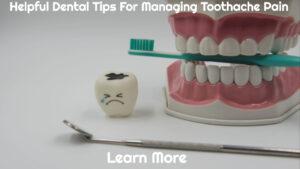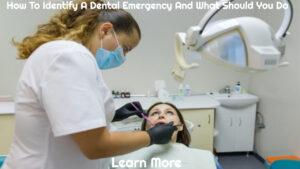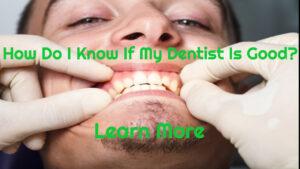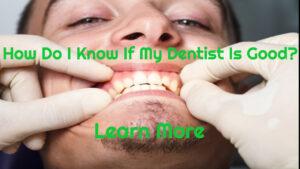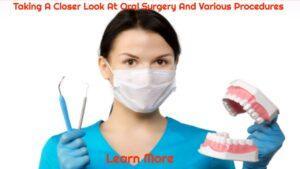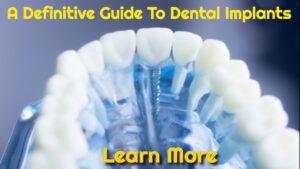Your cart is currently empty!
Category: Oral Care
-

What To Know And Do About Halitosis Or Bad Breath
Halitosis – Solutions for Bad Breath
Most people are hesitant to bring up the subject of halitosis. Despite the fact that it is a widespread problem, it is not anything you should be ashamed of. Many people believe that poor breath indicates a bad lifestyle, however, this is not true. We explain what halitosis is and what you can do about it in this article.
What Is Halitosis?
Halitosis, often known as foul breath, occurs when a person’s mouth emits an unpleasant odor. While it is not a serious medical problem in most cases, it can be unpleasant and cause social anxiety. Halitosis is a distressing disorder that can affect anyone. However, if you have persistent foul breath, your dentist can provide treatment options.
What Causes Bad Breath?
If you’ve discovered that you have persistent foul breath, you may be wondering why. There are numerous potential causes of foul breath, and once identified, you can address the issue. The most common reasons of foul breath are dental and gum disorders, although some can also be caused by underlying medical conditions. Furthermore, certain foods contribute to poor breath. Furthermore, smoking, tobacco products, and excessive alcohol use can all create bad breath.
Poor Oral Hygiene
Poor dental hygiene is frequently the root cause of bad breath, as plaque and germs can accumulate on the teeth and tongue, generating an unpleasant odor.
Periodontitis
Gum disease is another possible reason for bad breath. Gum disease occurs when your gums become inflamed and infected. As a result, poor breath is a common sign of gum disease. Gum disease develops when plaque accumulates on the teeth.
Medical Conditions
Dry mouth, GERD, sinus infections, and diabetes are all medical disorders that can produce bad breath. Assume you’ve been snoring, using certain medications, or are simply prone to sinus problems. In that situation, you may be suffering from a medical problem that is causing your breath to stink. In addition, some people suffer from persistent dry mouth as a result of diseases or difficulties with the salivary glands. To be sure, consult your doctor, who can undertake a halitosis evaluation.
Certain foods might also contribute to bad breath.
Garlic and onions, for example, are known to create bad breath. Bacteria in the mouth degrade food particles and emit compounds that cause bad breath. As a result, thorough brushing and flossing are required to eliminate particles and bacteria from the mouth.
How Is Halitosis Detected?
Bad breath, or halitosis, can be unpleasant and frustrating. However, determining the source of halitosis might be difficult. A visit to your dentist or oral hygienist is the best way to identify halitosis. They will be able to check your mouth and teeth to determine whether you have gum disease or tooth decay. If the dentist rules out these possibilities, they may advise you to contact a doctor to rule out any other potential reasons for bad breath.
What Is The Treatment For Halitosis?
Treatment for halitosis is determined by the underlying cause. For example, if the cause is poor dental cleanliness, the treatment is to improve oral hygiene habits. Brushing and flossing teeth more frequently, as well as using a tongue scraper and mouthwash, are all examples of good oral hygiene routines. If the reason is a medical illness, the treatment will focus on treating the underlying condition. For example, if the cause is sinus infections, antibiotics will be prescribed. The best approach to treat bad breath is to see your dentist, who can diagnose the cause and recommend treatment alternatives.
How Can I Avoid Halitosis?
You may prevent halitosis by brushing and flossing on a regular basis, using mouthwash, and avoiding specific meals. Here are a few tips to help you avoid halitosis or foul breath:
Brush your teeth twice a day and floss once a day to maintain proper oral hygiene. Brushing and flossing your teeth will aid in the removal of food particles and bacteria from your mouth. Before going to bed, scrape your tongue to remove any bacteria buildup and rinse your mouth with an alcohol-free mouthwash.
Avoid foods that contribute to foul breath, such as garlic, onions, sugary foods, and alcoholic beverages. Quitting smoking will also help you eliminate foul breath and avoid any tobacco products.
Keep your mouth hydrated and your saliva moving by drinking plenty of water.Bad breath is a very prevalent issue. It can be caused by a variety of factors, including poor dental hygiene and the bacteria that live in your mouth. If you have foul breath, it is critical to understand the causes in order to identify the best course of therapy.
Brought To You By: Aria Dental of Annapolis
The post What To Know And Do About Halitosis Or Bad Breath appeared first on https://arquiaca.org
The post What To Know And Do About Halitosis Or Bad Breath appeared first on https://wookicentral.com
The post What To Know And Do About Halitosis Or Bad Breath appeared first on https://gqcentral.co.uk
-
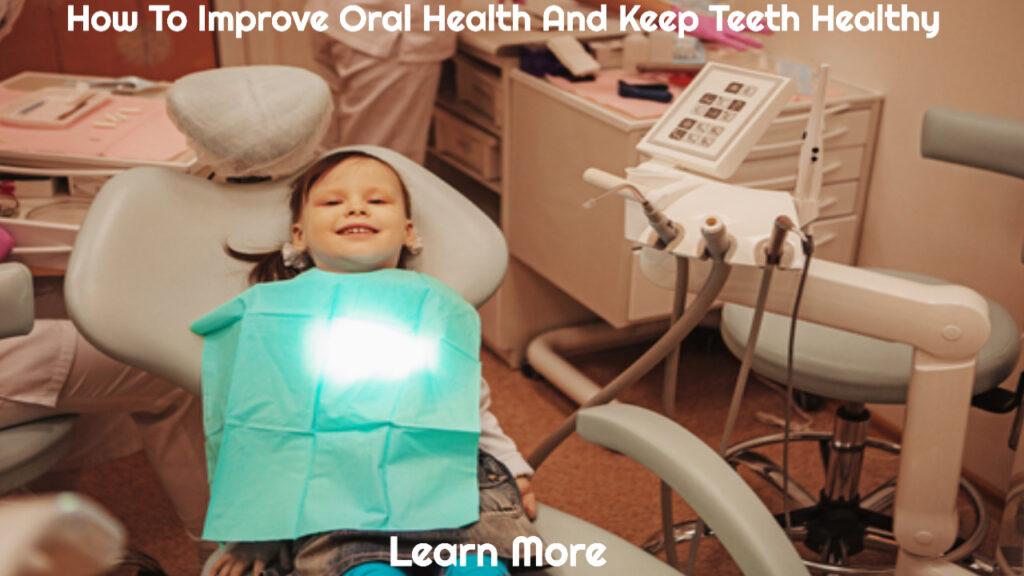
How To Improve Oral Health And Keep Teeth Healthy
Oral Health – How To Take Care Of Your Teeth
Good oral health can have a significant impact on your overall health. Good oral hygiene practices help to avoid tooth decay and gum disease, which can lead to more serious issues in the future. Oral health can help us preserve our teeth as we age, in addition to preventing cavities and bad breath. Furthermore, a healthy mouth improves our appearance, communication, and other elements of our lives. Unfortunately, trained doctors have linked oral health to systemic disorders, making us feel unwell.
Your Diet Affects Your Oral Health
If you’re concerned about the state of your teeth, you’ve probably wondered how to maintain them healthy. To begin, evaluate the type of diet you follow. A nutritious, well-balanced diet is necessary for good dental health since it feeds the body with essential nutrients and vitamins. As a result, it is preferable to avoid processed foods and refined sugars in your diet. Rather, choose fresh fruits and vegetables and consume them uncooked whenever feasible.
Calcium-rich foods such as meat, fruits, and green leafy vegetables are essential for strong teeth. Sugary meals should also be avoided because they promote tooth decay and gum disease. Avoid sticky sweets, sugary foods, and soft drinks as well. The more sugar you consume, the more likely it is that you may acquire cavities.
Teeth are made up of a powerful material called enamel, which helps protect your teeth from decay. Sugars in the mouth feed bacteria, which produce acids that erode the enamel and cause cavities. Consuming calcium-rich foods is critical in combating this issue. Dairy products include this essential mineral, and low-fat types help keep calories in check. Nondairy calcium sources include calcium supplements and calcium-containing foods.
What You Drink Affects Your Teeth
Drinking enough water is another strategy to avoid plaque and keep your teeth healthy. In addition, consume milk with less sugar to prevent sugary drinks. Because milk neutralizes acid in the mouth, consuming it after dessert can help protect your teeth. Cranberries also contain an ingredient that keeps bacteria away from your teeth. They also have additional health benefits. You can drink more cranberry beverages, but keep an eye out for added sugar.
The Importance Of Regular Tooth Brushing
Another technique to maintain your teeth healthily is by brushing at least twice a day and brushing for two minutes every night. Brush your teeth in circular motions with a soft-bristled brush with small to medium-sized bristles. Replace your toothbrush at least once a year. You should also think about adopting an electric toothbrush, which will help you brush your teeth more effectively because it uses a circular motion. Electric toothbrushes are more effective than manual toothbrushes at removing plaque.
Dental floss is necessary.
Aside from brushing, flossing is recommended to eliminate food particles lodged between your teeth. Flossing is an important element of maintaining your dental health. It removes food and plaque that your toothbrush may miss, and it keeps your teeth strong by removing bacteria that destroy tooth enamel. Furthermore, keeping the areas between your teeth and gums clean might help you avoid gum disease and cavities. Dental professionals recommend flossing your teeth before going to bed at night and again before brushing your teeth in the morning. Floss at least once a day, and your teeth will thank you.
Dental Visits Are Required To Have A Healthy Mouth
Another vital recommendation is to go to the dentist on a regular basis. A healthy mouth is critical to your overall health. However, if you don’t have the time to visit the dentist every six months, it might be difficult to maintain good oral health. Your dentist is an oral care professional who can advise you on the best method to care for your teeth. It is suggested that you visit your dentist at least twice a year for cavity prevention and routine cleaning.
If you’re tired of feeling self-conscious about your teeth, now is the time to make a change. Dentists have long recognized the importance of dental health in a person’s overall health. As a result, it is critical that you take care of your teeth. The first step is to contact your dentist and make an appointment. They will be able to inspect your teeth and present you with a strategy to improve your dental health once you arrive. Brushing and flossing your teeth on a daily basis is the most effective technique to improve your oral health. Brushing and flossing on a regular basis will eliminate plaque and food particles that have accumulated on your teeth. There are additional strategies to improve your dental health that your dentist may assist you with.
Brought To You By: StarBrite Dental
The post How To Improve Oral Health And Keep Teeth Healthy appeared first on https://arquiaca.org
The post How To Improve Oral Health And Keep Teeth Healthy appeared first on https://wookicentral.com
The post How To Improve Oral Health And Keep Teeth Healthy appeared first on https://gqcentral.co.uk
-
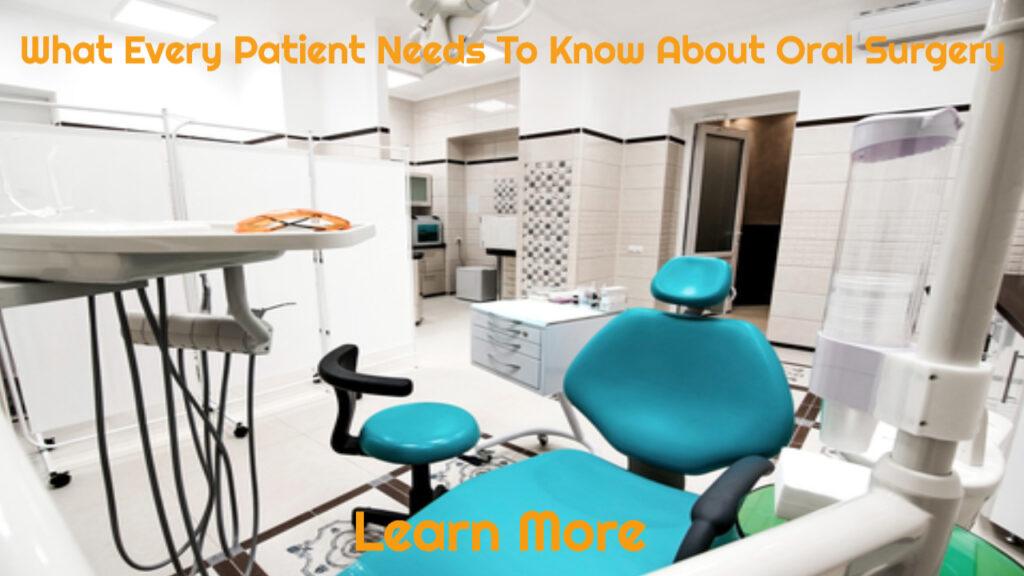
What Every Patient Needs To Know About Oral Surgery
Oral Surgery – What Every Patient Needs to Know
When a dentist suggests oral surgery, a patient may be concerned. This person must understand “what is oral surgery?” Why would someone require such a procedure?
What is Oral Surgery?
Oral surgery is defined as any surgical operation performed on the oral structures of the patient. Procedures such as extractions, gum grafts, and dental implants are included in this category, and oral surgeons are often responsible for performing the procedures rather than conventional dentists. So, what exactly do oral surgeons perform, and how do they differ from other dental experts, are some of the questions.
When is Oral Surgery Needed?
Oral surgery is frequently required when there is extensive tooth decay or a badly fractured tooth. Despite this, a dentist may prescribe this surgery in a variety of different circumstances. For example, impacted or missing teeth may necessitate surgical intervention. An additional treatment option for gum disease and temporomandibular joint issues is surgery, which a dentist may prescribe. Surgery is frequently used in the treatment of sleep apnea and oral cancer, as well as in the treatment of noncancerous tumors.
What Do Oral Surgeons Do?
When a patient requires an oral surgery operation of this nature, general dentists will often refer them to an oral surgeon. “What do oral surgeons perform?” you might wonder after receiving this recommendation. An oral and maxillofacial surgeon performs surgical treatments on oral structures, such as the mouth, face, and jaw, as well as on the teeth. Following graduation from dental school, this individual will have an additional three to four years of training to learn how to do the operations listed above.
Before Oral Surgery
Before performing oral surgery, the expert does a thorough examination of the patient’s mouth, teeth, gums, and jawbones. Then they use X-rays and scans to gain a more detailed look at the structures in question. The X-rays and scans enable the surgeon to develop a customized treatment plan that is tailored to the patient’s specific requirements.
The Oral Surgical Procedure
Depending on the nature of the operation, oral surgical treatments might be performed as an outpatient procedure or in a hospital setting. Before the treatment begins, the patient is given a sedative to help him or her relax. The length of time required for surgery varies depending on the technique and the tissues involved.
Recovery Following Oral Surgery
Patients are provided with thorough post-operative instructions. Follow these directions to the letter, since doing so reduces the chance of infection, bleeding, and other issues in the long run. Healing time varies depending on the individual and the technique. The majority of patients, on the other hand, report complete recovery in a few days.
The length of recovery time is determined by the nature of the operation; hence, more extensive treatments result in longer healing durations. Oral surgeons provide drugs to patients when they are necessary to assure their comfort. Unless they have a more significant operation, such as corrective jaw surgery, most people find that they may return to work or school within three days following their procedure.
Following the operation, avoid eating anything that is hard or crunchy. While the mouth is healing, soft foods such as yogurt, mashed potatoes, and eggs are healthier alternatives to eat. Many patients also find that ice cream, milkshakes, and popsicles help to calm the surgical site, so keep them available after the operation as a soothing option.
Will Insurance Cover the Procedure?
 Patients frequently inquire as to whether their insurance will pay all or a portion of the procedure’s costs. The majority of oral procedures are covered by dental insurance, although this is not always the case. Provided a surgical operation is necessary as a result of an accident, the procedure may be covered by a medical insurance policy if it is performed in a hospital environment. Always check with your insurance providers before scheduling surgery to find out how much each insurance company will pay and how much will be the patient’s obligation until the procedure is completed.
Patients frequently inquire as to whether their insurance will pay all or a portion of the procedure’s costs. The majority of oral procedures are covered by dental insurance, although this is not always the case. Provided a surgical operation is necessary as a result of an accident, the procedure may be covered by a medical insurance policy if it is performed in a hospital environment. Always check with your insurance providers before scheduling surgery to find out how much each insurance company will pay and how much will be the patient’s obligation until the procedure is completed.Benefits of Oral Surgery
Dental structures must collaborate in order to provide the best possible oral health and function. Occasionally, though, a situation occurs that makes it difficult for them to act as a group effectively. Oral surgery is the treatment of problems that arise in these structures, with the goal of improving the patient’s oral health and general quality of life.
Risks of Oral Surgery
Oral surgery, like any other surgical operation, carries some dangers with it. Patients may get an infection or experience a dry socket as a result of their treatment. This syndrome occurs when a patient, in some way, interferes with the blood clotting process following a surgical extraction procedure. Numbness and damage to neighboring teeth, as well as dental root issues, continue to be a source of worry. In addition, some people develop sinus difficulties after having an oral surgical operation performed on their teeth. Following all post-operative instructions provided by the oral surgeon and taking medicines as indicated can help to prevent the likelihood of these issues occurring in the future.
When to Call the Oral Surgeon
Whenever a patient experiences discomfort following surgery and finds that medicine is not helping to minimize or eliminate the pain, they should contact their oral surgeon immediately. In addition, any temperature of 100.4 or above necessitates a call to the surgeon immediately, and the same is true if the surgical site is draining or otherwise leaking. These indications indicate that there is an infection at the surgery site, which needs rapid treatment.
The use of current surgical technologies is advantageous to oral surgeons. They are now able to give patients high-quality care through the use of less intrusive technologies. Patients report that oral surgical operations help to restore the health and function of their oral tissues, reduce or eliminate discomfort, and give them a better overall quality of life, among other benefits. If your dentist has advised one or more surgical treatments, you should seek assistance from an oral surgeon as soon as possible. Then, when you finally feel better, you’ll be grateful that you took this action.
Brought To You By: https://www.starbritedentalrockville.com/oral-surgeon-rockville-md
The post What Every Patient Needs To Know About Oral Surgery appeared first on https://arquiaca.org
The post What Every Patient Needs To Know About Oral Surgery appeared first on https://wookicentral.com
The post What Every Patient Needs To Know About Oral Surgery appeared first on https://gqcentral.co.uk
